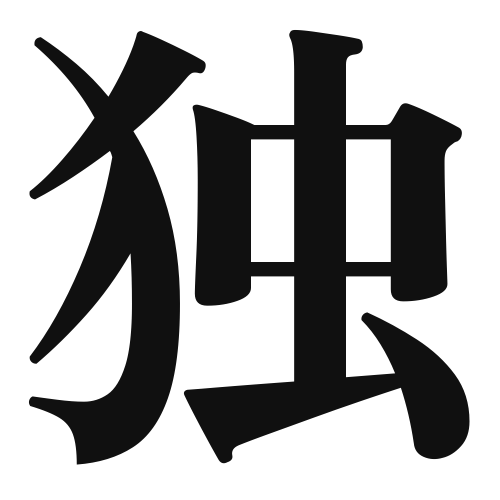1. Overview of Meaning
The kanji “独” (doku) means “alone” or “independent.” It conveys the idea of being solitary or self-sufficient, often emphasizing individuality or uniqueness.
2. Formation and Radical
The kanji “独” is a compound character that combines elements to convey its meaning. It is formed from the radical “犬” (inu), which means “dog,” and the phonetic component “独” itself, which suggests the idea of being solitary, as dogs are often seen as loyal companions but can also represent independence.
The radical “犬” is significant as it relates to animals, often symbolizing loyalty and companionship, while the overall character emphasizes the concept of being alone.
3. Examples of Usage
Common words and phrases that include “独” are:
- 独立 (dokuritsu) – independence
- 独特 (dokutoku) – uniqueness
- 独り (hitori) – alone
Example sentences in daily conversation:
- 彼は独立した人です。 (Kare wa dokuritsu shita hito desu.) – He is an independent person.
- 彼女は独特なスタイルを持っています。 (Kanojo wa dokutoku na sutairu o motteimasu.) – She has a unique style.
4. Synonyms and Antonyms
Similar kanji with related meanings include:
- 孤 (ko) – meaning “lonely” or “isolated,” which emphasizes a more negative connotation of being alone.
Antonyms include:
- 共 (kyou) – meaning “together” or “shared,” which conveys the idea of companionship and community.
5. Cultural and Historical Background
The kanji “独” has significant ties to Japanese culture, often reflecting the value placed on individuality and self-reliance. In various proverbs and idioms, it can symbolize the strength found in solitude or the importance of standing alone in one’s beliefs.
For example, the proverb “独立独歩” (dokuritsu dokuho) means “to walk one’s own path,” emphasizing the importance of independence and self-determination.
